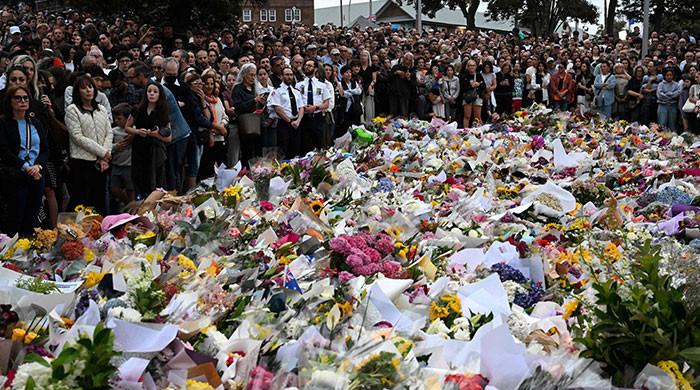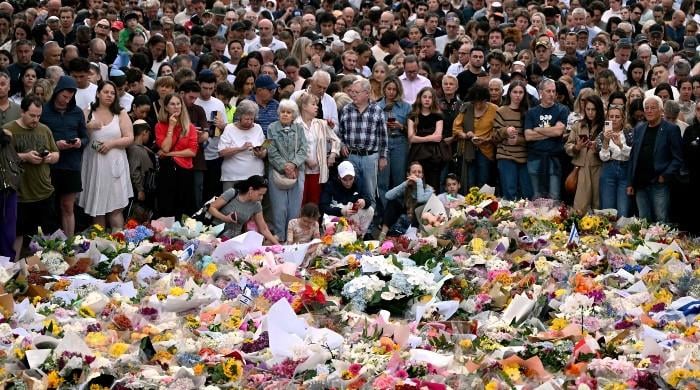28,000 Disney workers to become latest economic casualties of coronavirus
Also, a look at other major casualties of the coronavirus crisis, including MGM, American Airlines and Renault
September 30, 2020

PARIS: Disney has announced that it is getting rid of 28,000 jobs, mostly at its theme parks in the United States, where attendance has been crushed by the coronavirus pandemic.
According to BBC, the lay-offs will affect the Disney's Parks, Experiences and Products unit, and 67% of the employees laid off will be part-time workers.
Disney shut its theme parks worldwide when the novel coronavirus began spreading this year. All but Disneyland — nicknamed the Happiest Place on Earth — reopened, though the company was forced to limit the number of visitors to allow for physical distancing.
"We have made the very difficult decision to begin the process of reducing our workforce at our Parks, Experiences and Products segment at all levels," Josh D'Amaro, chairman of the parks unit, said in a statement.
He cited the parks' limited capacity and uncertainty about the pandemic's duration, which he said was "exacerbated in California by the state's unwillingness to lift restrictions that would allow Disneyland to reopen."
The coronavirus pandemic has devastated large parts of the economy, not least the aviation and automobile sectors, but also the retail, energy and leisure industries.
The pandemic has also left a multitude of small companies in difficulty and destroyed insecure jobs.
Here is a recap of some major casualties:
Crash landing
Among the carriers in crisis in the air transport sector are two Latin American airlines, including the region's biggest LATAM, and Colombia's Avianca, both of which have filed for bankruptcy protection in the United States.
Virgin Australia has also collapsed and is being bought by a US company.
Among the smaller airlines to have filed for bankruptcy are South Africa's Comair and South African Airways, and Flybe of Britain.
Others are surviving but with layoffs: more than 41,000 job losses have been announced at American Airlines, up to 36,000 at United Airlines, 22,000 at Germany's Lufthansa, at least 19,000 at Air Canada, 12,000 at British Airways, 40,000 at American Delta Air Lines, 6,000 at Australia's Qantas, 7,500 at Air France, 5,000 at Scandinavia's SAS, and 4,500 at Britain's EasyJet.
Several others have also shed thousands of jobs, including Britain's Virgin Atlantic (3,150), Ireland's Ryanair (3,250) and Icelandair 2,000.
American Airlines and United Airlines have warned that unless they get more aid they could eliminate another 19,000 and 13,000 jobs respectively from October 1.
Among the plane manufacturers, Boeing has announced 16,000 layoffs, Airbus 15,000 and Canada's Bombardier 2,500.
Many airports, including in Paris, Copenhagen, Gatwick and Frankfurt, have also announced job cuts.
In ground handling services, Swissport will slash more than 4,000 jobs in Britain.
In the engine sector, General Electric and Britain's Rolls-Royce have also shed 12,600 and 9,000 jobs respectively.
Some governments have stepped in to limit the damage: Germany has flown to the rescue of Lufthansa and Condor, France and the Netherlands have done the same for Air France-KLM. Italy and Portugal have decided to nationalise Alitalia and TAP.
The world's tourism giant TUI will scrap 8,000 jobs, and the parent company of Premier Inn 6,000 jobs.
Bumpy ride
The automobile industry has also taken a massive hit from the pandemic. Renault is to axe 15,000 jobs, and car rental giant Hertz has filed for bankruptcy.
BMW will cut 6,000 jobs, while Nissan plans to shut a factory in Barcelona that employs 3,000.
Sweden's Volvo Group, which makes heavy trucks, will slash 4,100 jobs worldwide, and in Britain more than 6,000 jobs will go at Jaguar Land Rover, Aston Martin, Bentley and McLaren.
Battered brands
The pandemic has been fatal for many brands meanwhile, as they had to close shops amid lockdowns.
In Britain, shopping centre owner Intu has gone into administration, as has clothing chain Laura Ashley, rent-to-own retailer BrightHouse and outlets for the department store chain Debenhams, which has also axed 2,500 jobs.
Other casualties include Marks and Spencer, the retail chain selling clothes and food, which will cut around 7,000 jobs.
In Germany, the department store chain Karstadt Kaufhof will close a third of its shops and lay off 6,000 employees.
In the catering sector Germany's Vapiano chain and Britain's The Restaurant Group have gone under, the latter closing 125 outlets and losing 3,000 jobs.
Other hard-hit sectors
American casino giant MGM had shed 18,000 posts.
The energy sector is also suffering. Houston-based oil services giant Schlumberger is planning to get rid of 21,000 jobs, a quarter of its workforce. British giant BP has announced plans to axe nearly 10,000 jobs, while Royal Dutch Shell will lose up to 9,000 staff, or 10 percent of its workforce.
Domestic British providers Centrica and OVO will shed 5,000 and 2,600 jobs respectively.










